 W
WDavid Cobb was a Massachusetts physician, military officer, jurist, and politician who served as a U.S. Congressman for Massachusetts's at-large congressional seat.
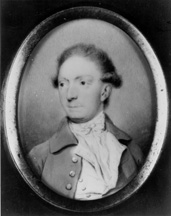 W
WWilliam Grayson was a soldier, lawyer, and statesman from Virginia. He was one of the first two U.S. Senators from Virginia, and belonged to the Anti-Federalist faction; he was also the first member of the United States Congress to die while holding office.
 W
WAlexander Hamilton was a Caribbean-born American statesman, politician, legal scholar, military commander, lawyer, banker, and economist. He was one of the Founding Fathers of the United States. He was an influential interpreter and promoter of the U.S. Constitution, as well as the founder of the nation's financial system, the Federalist Party, the United States Coast Guard, and the New York Post newspaper. As the first secretary of the treasury, Hamilton was the main author of the economic policies of President George Washington's administration. He took the lead in the federal government's funding of the states' debts, as well as establishing the nation's first two de facto central banks, a system of tariffs, and friendly trade relations with Britain. His vision included a strong central government led by a vigorous executive branch, a strong commercial economy, support for manufacturing, and a strong military.
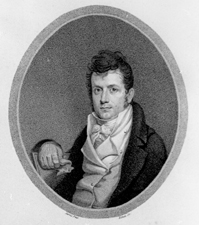 W
WAlexander Contee Hanson was an American lawyer, publisher, and statesman. He represented the third district of Maryland in the U.S. House, and the state of Maryland in the U.S. Senate.
 W
WRobert Hanson Harrison was an American Army officer, attorney, and judge. He was a Continental Army veteran of the American Revolution and is most notable for his service as George Washington's military secretary, the de facto chief of staff of Washington's headquarters for most of the war.
 W
WDavid Humphreys was an American Revolutionary War colonel and aide de camp to George Washington, a secretary and intelligence agent for Benjamin Franklin in Paris, American minister to Portugal and then to Spain, entrepreneur who brought Merino sheep to America and member of the Connecticut state legislature. A poet and author, he was one of the "Hartford Wits." He wrote the first sonnet known to have been written in America just about the time independence was declared.
 W
WJohn Laurens was an American soldier and statesman from South Carolina during the American Revolutionary War, best known for his criticism of slavery and his efforts to help recruit slaves to fight for their freedom as U.S. soldiers.
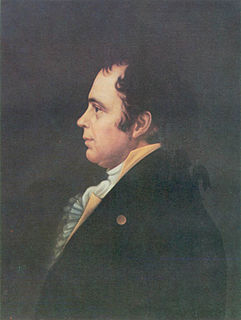 W
WJames McHenry was a Scotch-Irish American military surgeon and statesman. McHenry was a signer of the United States Constitution from Maryland, initiated the recommendation for Congress to form the Navy, and was the eponym of Fort McHenry. He represented Maryland in the Continental Congress. He was a delegate to the Maryland State Convention of 1788, to vote whether Maryland should ratify the proposed Constitution of the United States. He served as United States Secretary of War from 1796 to 1800, bridging the administrations of George Washington and John Adams.
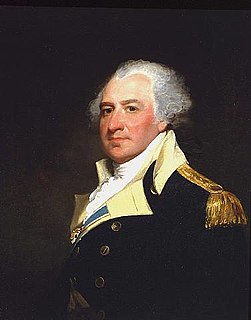 W
WThomas Mifflin was an American merchant, soldier, and politician from Philadelphia, Pennsylvania. He served in a variety of roles during and after the American Revolution, several of which qualify him to be counted among the Founding Fathers. He was the first Governor of Pennsylvania, serving from 1790 to 1799; he was also the last President of Pennsylvania, succeeding Benjamin Franklin and serving from 1788 until 1790.
 W
WWilliam Palfrey (1741–1780) was an American Patriot.
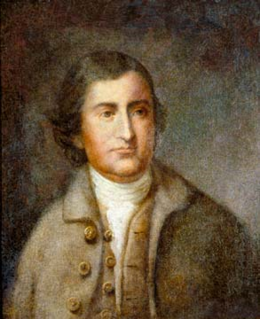 W
WEdmund Jennings Randolph was an American attorney and politician. He was the 7th Governor of Virginia, and, as a delegate from Virginia, he attended the Constitutional Convention and helped to create the national constitution while serving on its Committee of Detail. He was the 1st United States Attorney General and subsequently the 2nd Secretary of State during George Washington's presidency.
 W
WJoseph Reed was a lawyer, military officer and statesman of the American Revolutionary Era who lived the majority of his life in Pennsylvania. He served as a delegate to the Continental Congress and, while in Congress, signed the Articles of Confederation. He also served as President of Pennsylvania's Supreme Executive Council, a position analogous to the modern office of Governor.
 W
WWilliam Stephens Smith was a United States Representative from New York. He married Abigail "Nabby" Adams, the daughter of President John Adams, and so was a brother-in-law of President John Quincy Adams and an uncle of Charles Francis Adams Sr.
 W
WTench Tilghman was an officer in the Continental Army during the American Revolutionary War. He served as an aide-de-camp to General George Washington, achieving the rank of lieutenant colonel.
 W
WJohn Trumbull was an American artist of the early independence period, notable for his historical paintings of the American Revolutionary War, of which he was a veteran. He has been called "The Painter of the Revolution".
 W
WJonathan Trumbull Jr. was an American politician who served as the 20th governor of Connecticut and the second Speaker of the United States House of Representatives.
 W
WRichard Varick was an American lawyer, military officer, and politician who has been referred to as "The Forgotten Founding Father." A major figure in the development of post-Independence New York City and State, Varick became the 45th Mayor of New York City in 1789 and served eleven consecutive one-year terms until 1801.
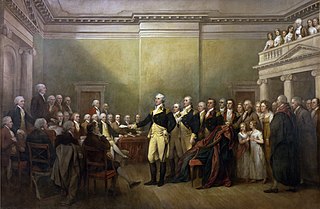 W
WCaptain Benjamin Walker was a soldier in the American Revolutionary War and later served as a U.S. Representative from New York.